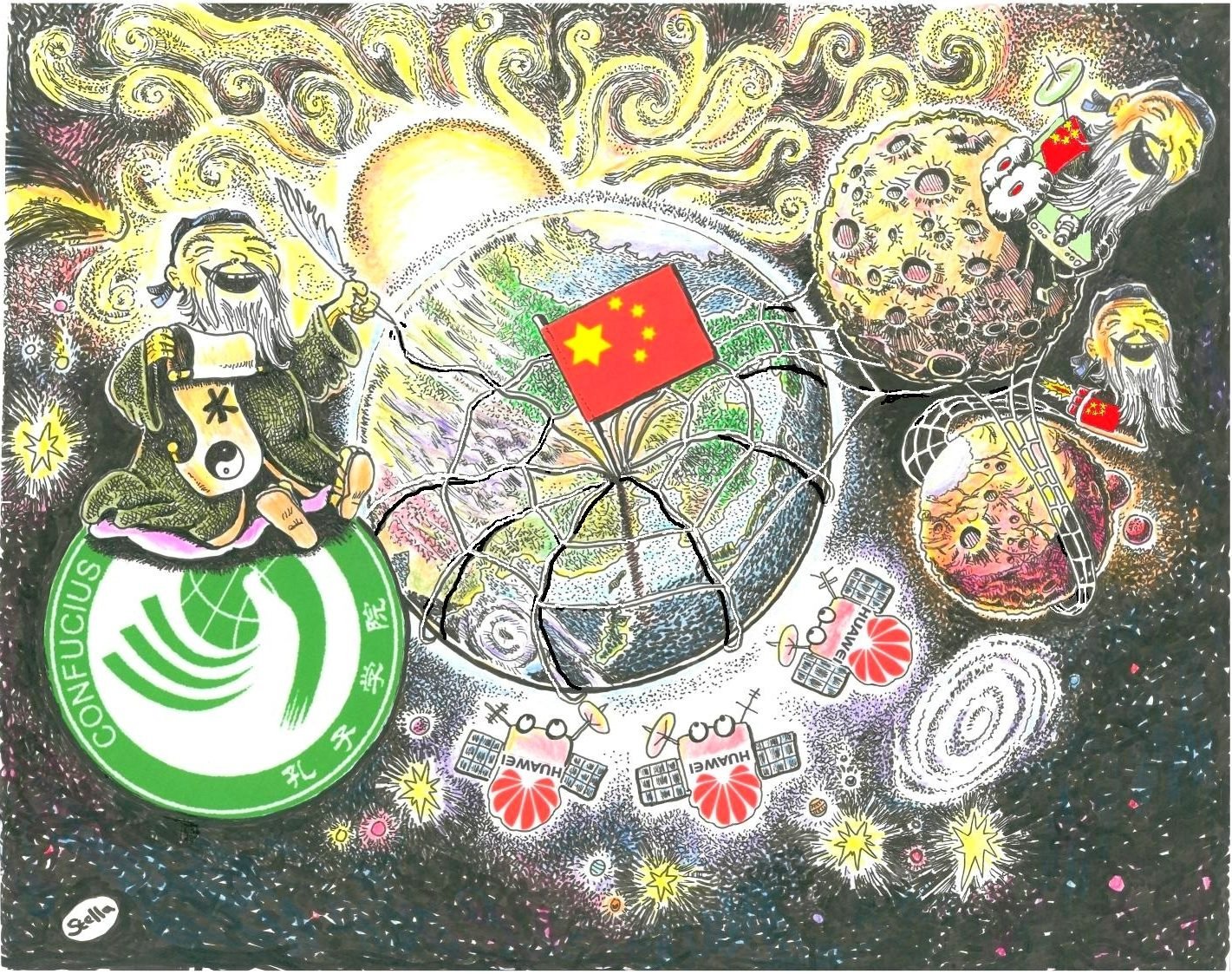Chinese President Xi Jinping’s consolidation of power at the recent Communist Party congress has significant implications for Western nations.

China’s Communist Party Congress
The Chinese Communist Party recently held its party congress to elect a party General Secretary. Held every five years, the event decided who would be elected as General Secretary and, thus, the leader of China.
Xi Jinping, the incumbent who has held office since 2012, was elected unopposed. In the process, he installed deputies loyal to him, ensuring his position for the foreseeable future. The party congress departed from the norm in a few other ways.

Firstly, the party enshrined ‘Xi Jinping Thought’ into the party constitution. Xi Jinping thought consists of 14 main ideas, including the notion of a ‘Chinese’ socialism, fighting party corruption, and more centralised control of institutions such as the military. Xi Jinping thought will become a core part of the message put out by state media as well as in China’s school system. This will further consolidate Jinping’s power and influence in Chinese society.
This move is notable firstly because it is the first time this has happened since the rule of Mao Zedong. Secondly, it makes the presumption that Jinping will be in power indefinitely. Normally, leaders only serve two five-year terms before succession plans are made. By neglecting to discuss a succession plan at this party congress, a tacit admission has been made that Jinping will serve beyond the usual term.
Jinping’s Rhetorical Pivots
Apart from this, there are some notable shifts in rhetoric and policy position which are worth noting. In a departure from previous leaders and even his own rhetoric, Jinping is more vocal about wanting China to be the foremost influence in global politics. He has instructed the Chinese military that they must ‘improve their readiness for war’. In a report by the state-run Global Times newspaper, Jinping also stated that the military must ‘support the dream of national rejuvenation’. This statement echoes sentiments of Xi Jinping thought within the Constitution.
‘In a departure from previous leaders and even his own rhetoric, Jinping is more vocal about wanting China to be the foremost influence in global politics.’
China appears to be paying closer attention to its diaspora populations throughout the world. The numbers of ethnic Chinese living outside the country are currently over 50 million worldwide. This number includes more than 30 million in Southeast Asia, Australia, and New Zealand.
Jinping has adopted policies to increase economic, cultural, and political ties between the Chinese diaspora and mainland China. The Chinese government is hopeful that some of the diaspora, often tertiary-educated and highly skilled, will take these skills back to their homeland to help advance economic growth there.
There have also been recent cases of potential interference in the New Zealand and Australian governments by Chinese nationals. In New Zealand, National Party minister Yang Jian was investigated for potential ties to Chinese military and intelligence agencies. In Australia, both the Labor and Liberal parties were found to have taken significant donations from businessmen with ties to the Communist Party.
Military Expansion: the South China Sea

Surrounding nations, including the Philippines, have strongly rebuked these actions. Several other nations lay various claims to territories in the region, putting them and China at odds over the issue. The area is critical from a geopolitical and strategic perspective. Much of the world’s commercial shipping passes through the area. By increasing its stake in the area, China increases its influence in terms of trade in the region.
Is the West ceding ground to China?
While China is increasingly asserting itself on the world stage, many Western nations and leaders are simultaneously doing the opposite. A notable example is the United States withdrawing from the Trans-Pacific Partnership (TPP). These signals on trade policy have not gone unnoticed among signatories of the TPP, particularly Australia. The Australian Prime Minister, Malcolm Turnbull, has pushed ahead with a TPP deal which does not include the United States. As the largest economy remaining, China would wield significant influence over the other signatories to the deal.
America’s uncertainty extends to the Paris climate accords and the issue of climate change more broadly. This is another position on which China has positioned itself as a leader. In contrast to Donald Trump, Jinping has been supportive of the Paris agreement and has repeatedly urged the United States to reconsider its position on the issue. China has also cancelled the building of more than 100 coal-powered plants and has pledged billions to developing renewable energy projects by 2020.
By going alone on climate change and international trade, the United States has ceded considerable international leverage on both issues. China has stepped in to fill the void left by the United States on these issues. All the signs point to an increasingly assertive China on more and more issues as influential Western nations such as the United States retreat from the world stage.
Responding to an assertive China







Yup I agree with your analysis, but I do not see any light being shone from the west. We did nothing about Tienanmen Square, we just watched as they polluted and killed their own their rivers with the chemical fallout from our exported electronic crap in the 1980s and 1990s. China, after Deng Xiaoping, has developed an amoral stance on exploiting countries where the leadership is open to corruption - i.e. most of Africa and South America. It is as if he saw what Thatcher did to deregulate financial services and selling of the peoples water supply etc. and embraced every crime he saw her commit against. China is repeating the same rape of the world's developing nations as did we in the 16th - 19th centuries, but doing it so much better. Mao got rid of any moral / spiritual elements to Chinese philosophy and the path was set. for Deng and now the current Xi. I just see Orwell's 1984 whenever I see those rows of men in black suits applauding their glorious leaders. The three biggest threats to "we the people" everywhere? China second only to globalisation and Islamism. Help! And answer came there none.